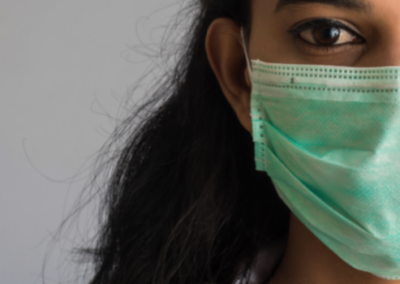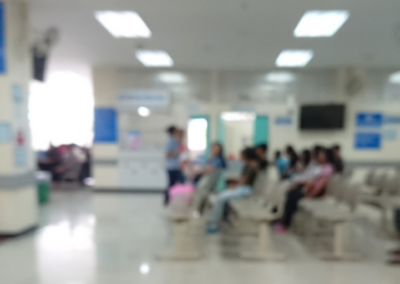‘The ability to access specialist dermatological reviews in real-time is revolutionary.’ – Dr Overbury.
Teledermatology provided by Consultant Connect allows Primary Care clinicians in participating areas to take and send IG-secure patient photos for rapid dermatological advice.
We spoke with two GPs who have access to Teledermatology, commissioned by their Integrated Care Boards (ICBs), to find out how this benefits healthcare professionals and patients.
Dr Overbury, a GP in South East London, sends patient photos to dermatologists at Guy’s and St Thomas’ NHS Foundation Trust. Dr Phillips, a GP in Oxfordshire, uses Teledermatology as part of his role as a locum.
Why do you like using Teledermatology via the Consultant Connect App?
‘It is safer in terms of confidentiality and reduces the number of unnecessary steps for taking and sending photos. I’m rapidly offered diagnoses and management plans without the need for time-consuming referrals. The benefits of using this are significant for both my patients and me. The ability to access specialist dermatological reviews in real-time is revolutionary. The specialist can see the examination findings visually along with my description, which means diagnoses are made much more accurately and a lot faster. Patients appreciate the joined-up approach as their case has been reviewed by a GP and a specialist.
‘The whole system is more efficient in reducing referrals and ensuring that the referrals made can be targeted appropriately by the specialist. GPs are continuously learning, and the Consultant Connect App provides excellent learning opportunities as we can hone our ongoing management of dermatological presentations by learning from specialists.’
– Dr Overbury.
‘The photos don’t stay on my mobile phone; they go straight into the cloud, and I can access them anywhere using a secure login. I can create a PDF with two clicks which contains all the photos. This means I only need to upload a single PDF into eMIS rather than multiple photos. I can also download the photos individually, which gives me good-quality JPEG files. These are ideal for sending via our Teledermatology service for advice.’
– Dr Phillips.
Patient Examples
Dr Overbury
‘I saw a patient who had been taking Tamoxifen following a mastectomy for breast cancer. She had developed an extensive itchy blanching rash on her limbs and chest. It was so extensive that she called an ambulance, who advised her to stop taking the Tamoxifen and make a GP appointment. She used antihistamines, stopped the medication and saw me after one week with no improvement.
‘I was concerned about a medication reaction and started her on Prednisolone. After two days, the rash had still not improved.
‘I used the Consultant Connect App to send photos of the rash to a dermatologist. Within 24 hours, I had a response saying that there was no evidence of Erythema Multiforme or Toxic Epidermal Necrolysis and that the rash was in keeping with a drug rash with possible mild Drug Rash with Eosinophilia and Systemic Symptoms (DRESS) but without system symptoms. The dermatologist concluded that the Prednisolone treatment could be continued with the addition of a topical steroid and emollient, adding that a referral should be considered if there was no improvement after a week.
‘A week later, the rash had resolved, which avoided a referral for the patient. It was a relief to the patient that the rash had cleared up and reassuring to me, as a GP, that the proposed diagnosis and management were safe.’
Dr Phillips
‘I took photos of a patient who had a very pronounced rash over the abdomen and limbs. I emailed the images to the Dermatology Team for advice. They thought it looked like annular psoriasis and recommended treatment.
‘Four weeks later, the patient returned. He saw the before and after photos of himself and was very impressed. I later used these photos with his consent to present the case at a local GP dermatology meeting. The patient got much better and continues on the treatment.’





